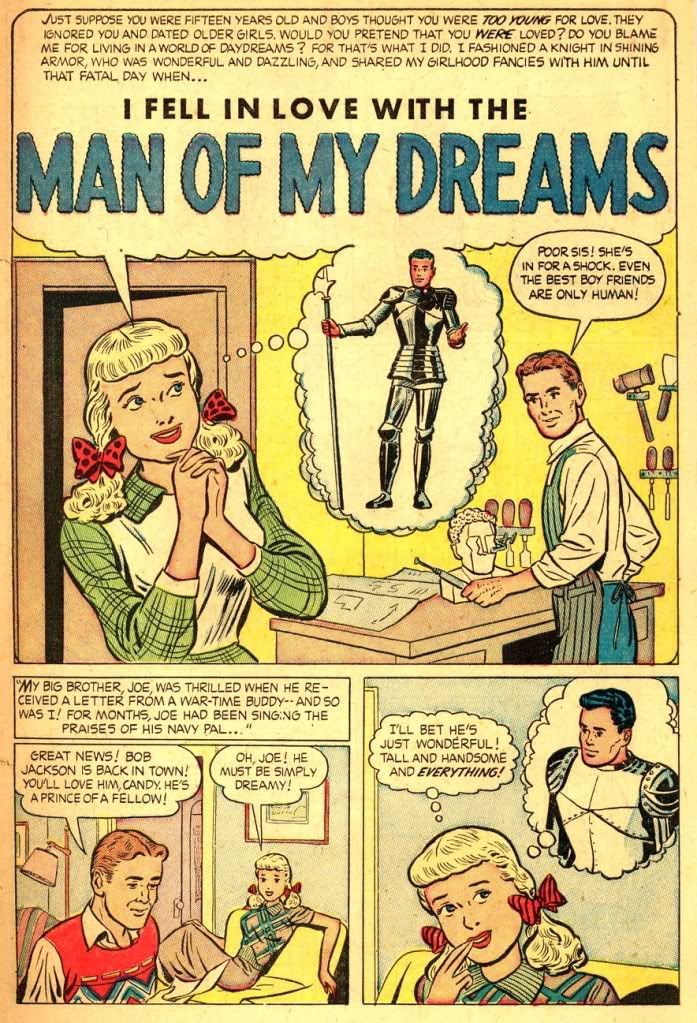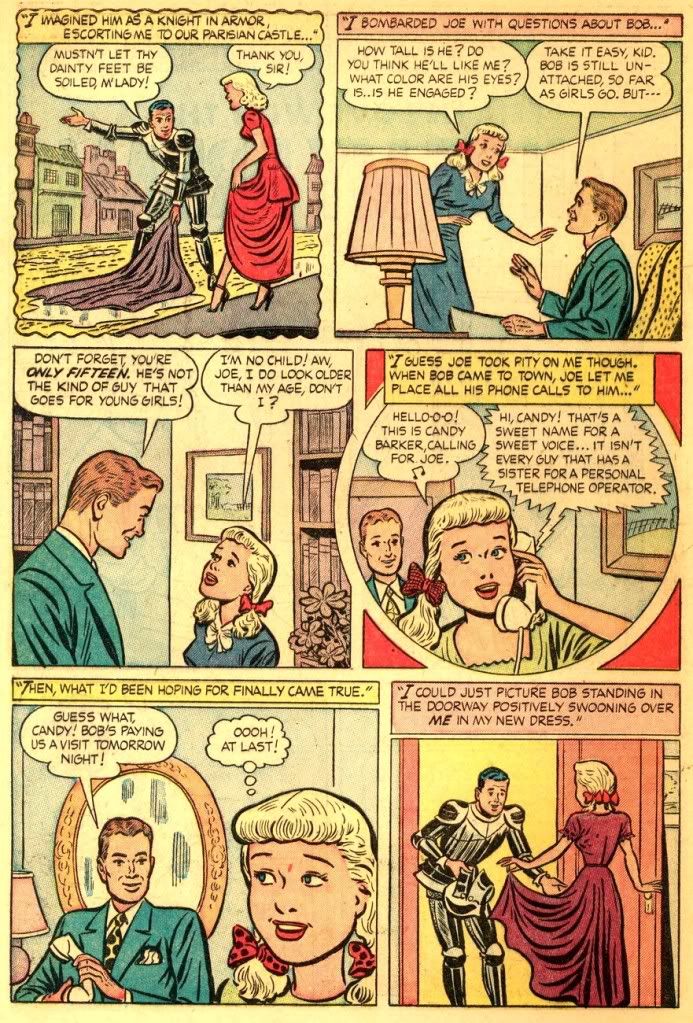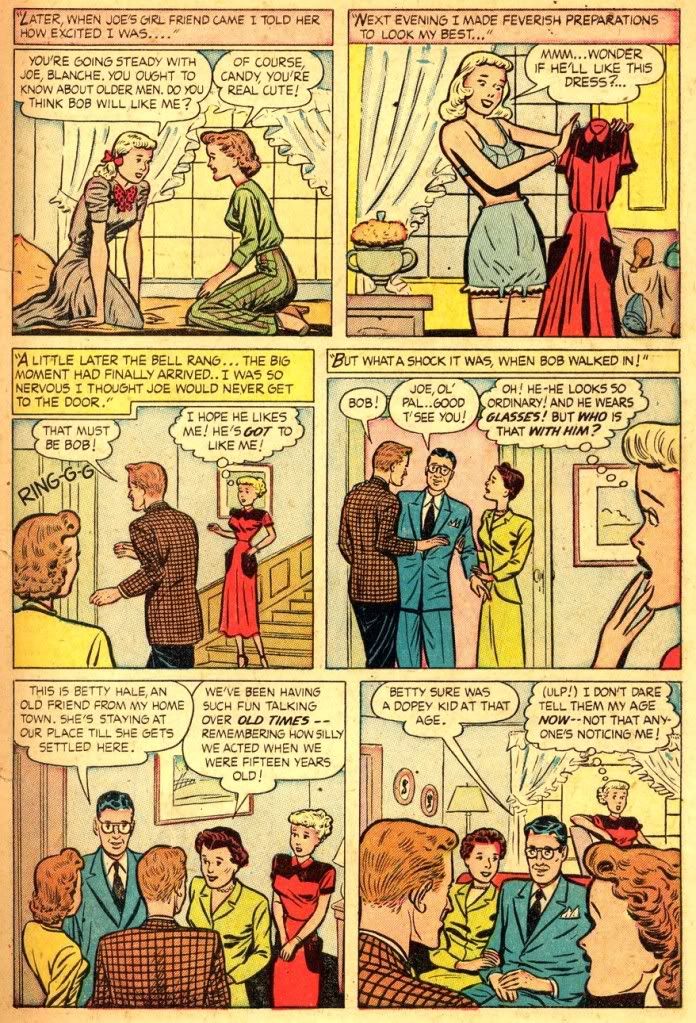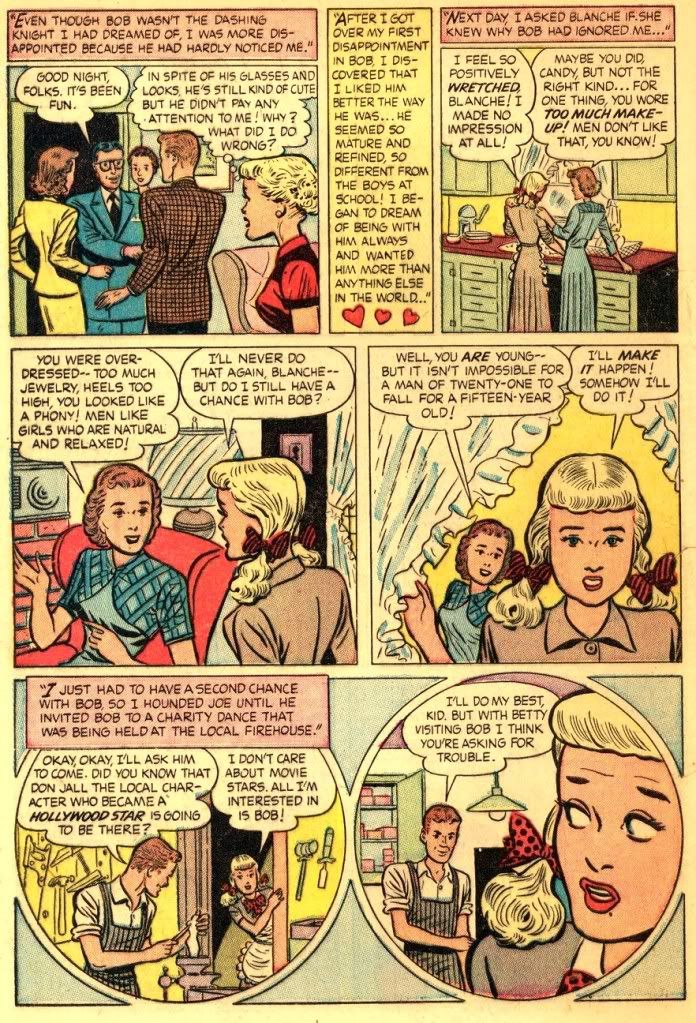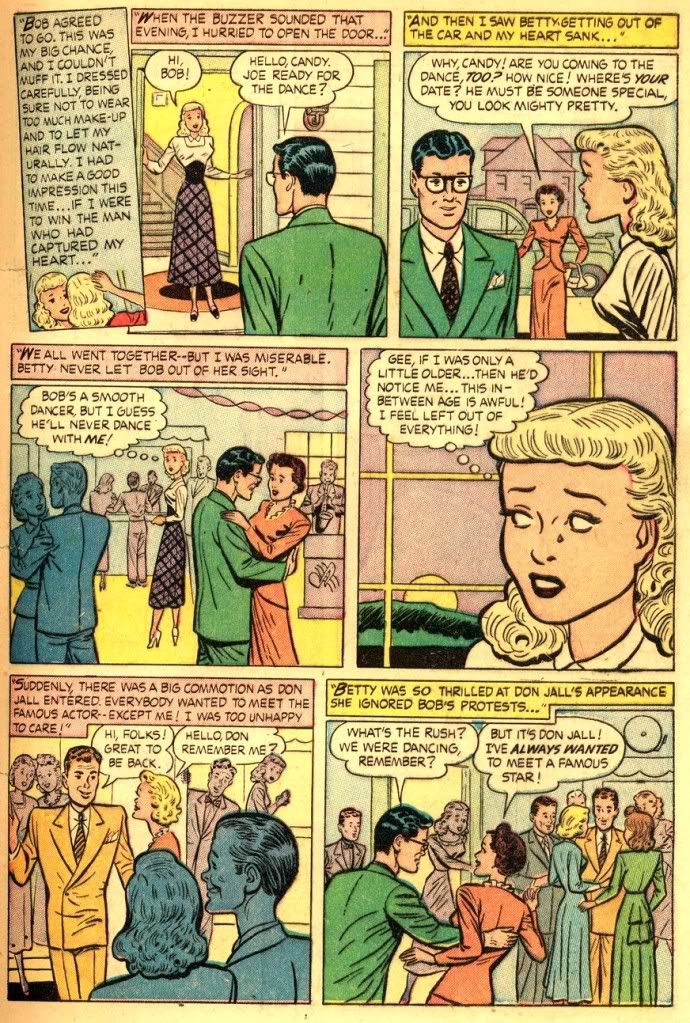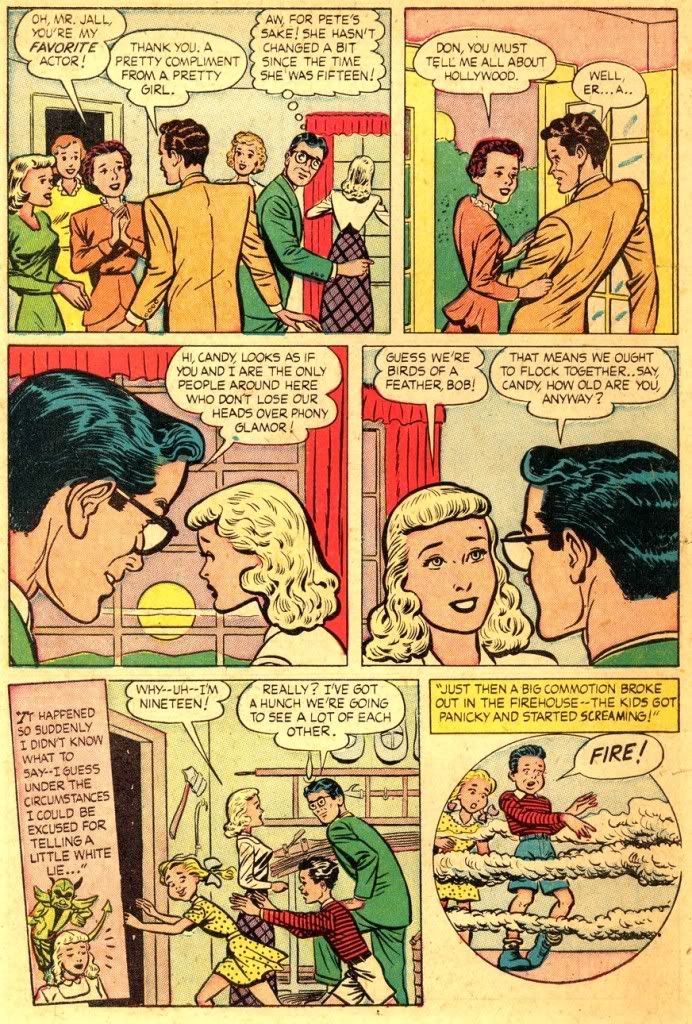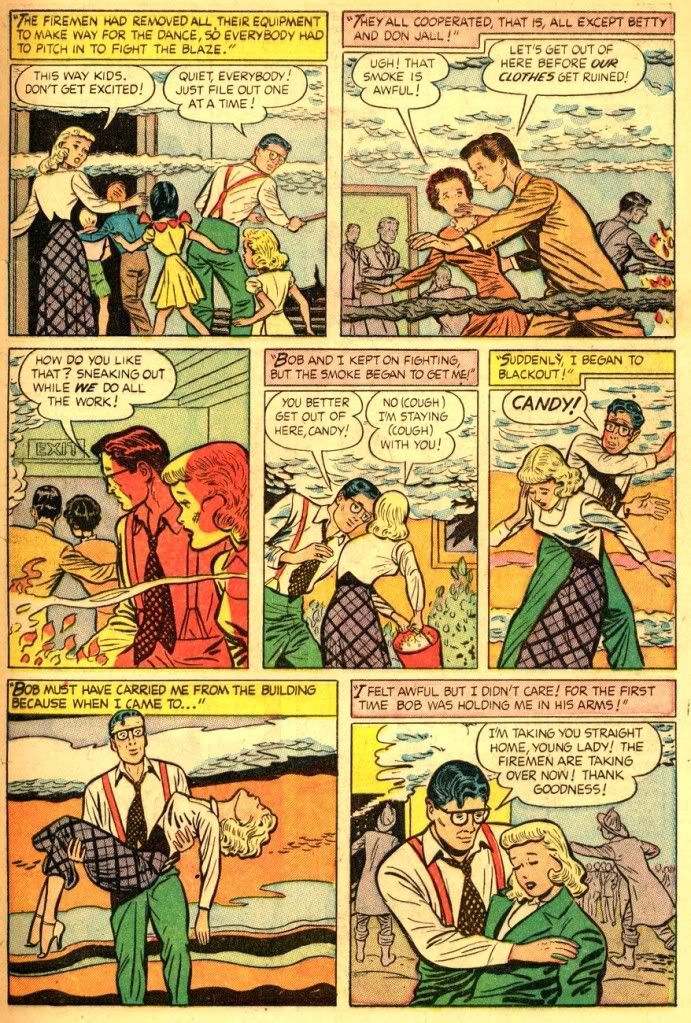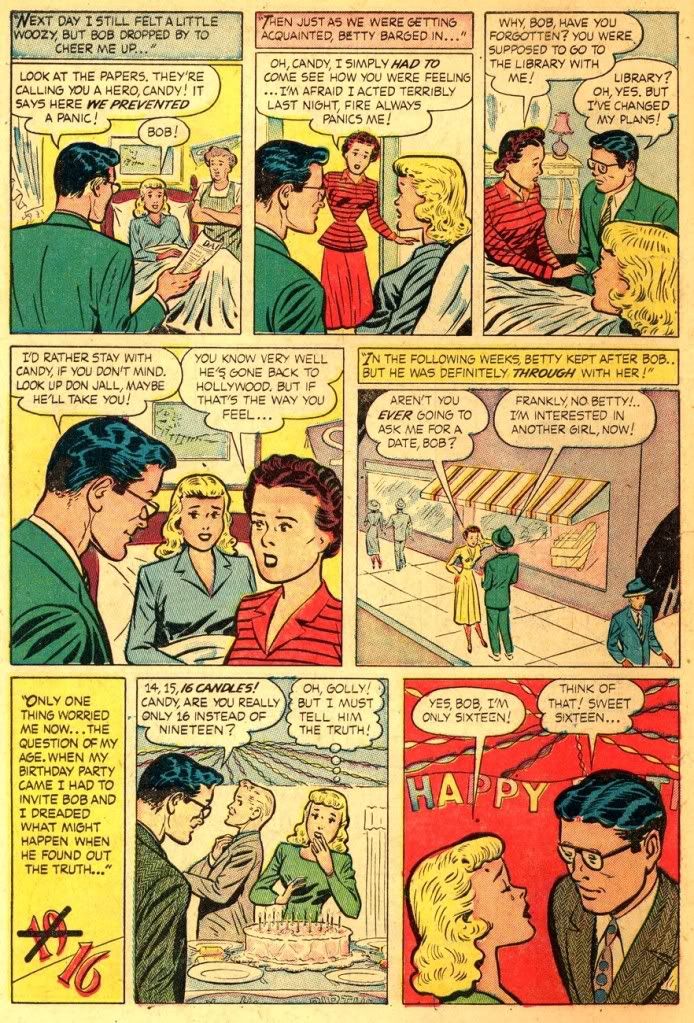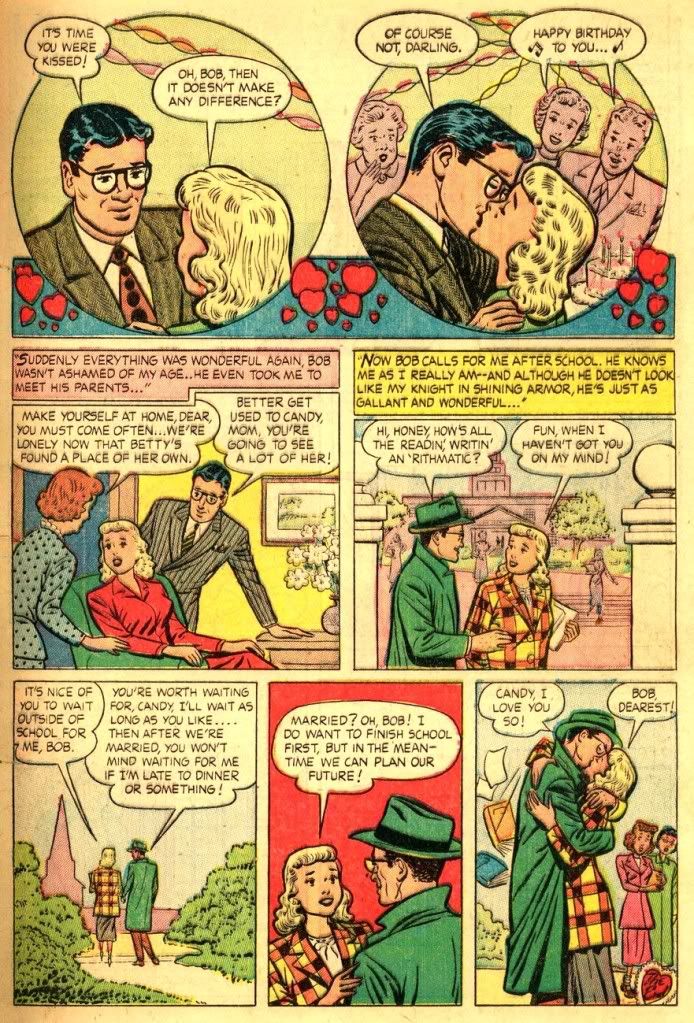| strannik01 ( @ 2009-10-07 12:56:00 |
|
|
|||
|
|
|
|
|
|
|
| Entry tags: | era: golden age, genre: romance, publisher: harvey comics, status: public domain |
When romance comics were downright creepy.
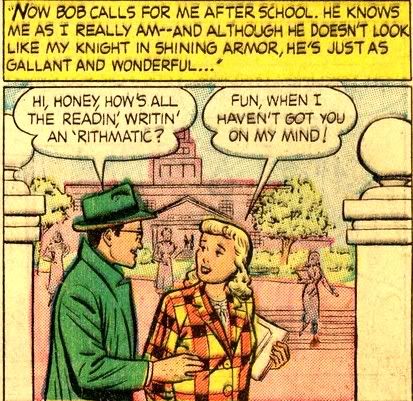
As anybody who read romance comics scans in both versions of our fine community can attest, romance comics often featured romances between young girls and men that were (at least) a couple of years older then them. But none of them were quite as creepy as "The Man of My Dreams," a story that appeared in Love Problems and Advice Illustrated #2. Now, I know that age consent worked a bit differently back then (it didn't count if you were married), but still... The names of the artist and writer who created this are lost in the mist of time, which is probably just as well.
Dial-up link link (even if less and less people need it every day)

